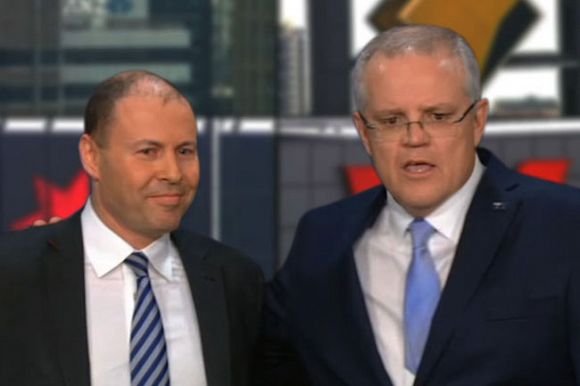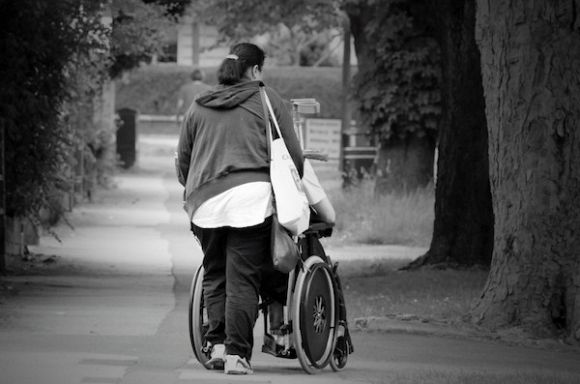The Australian medical community is ignoring research and promoting outdated information in the fight against myalgic encephalomyelitis, writes Natalia Hodgins.
THIRTEEN YEARS AGO, Eliza Charley caught a virus and didn’t recover. She was a 21-year-old university student who went from living a full and active life, to being largely housebound due to severe fatigue.
When her world shrank, Eliza tried everything to get better:
“I trusted my healthcare providers, who prescribed exercise and behavioural therapy as treatment. After six months of carefully following their advice, I became so disabled I spent a year of my life bedridden. I became physically worse because I was told to push through my fatigue and continue exercising. The behavioural therapy I was prescribed was medical gaslighting at its worst.”
Eliza has myalgic encephalomyelitis, more commonly known by the misnomer chronic fatigue syndrome or ME/CFS. This complex disease affects a quarter of a million Australians and its defining symptom is post-exertion malaise (PEM), where patients deteriorate after even minor activities like taking a shower or speaking on the phone.
For people living with ME/CFS, their ability to make energy is broken, leading the patient community to call themselves the “millions missing from life”. Around 25 per cent of patients are so severely disabled they spend their days bedridden, unable to tolerate light, touch or sound.
ME/CFS has a contentious history, having faced decades of discrimination by the medical community. When the disease first came to attention in the United States in the 1980s, patients were dismissed as hysterical and The New York Times labelled the illness ‘the yuppie flu’.
In Britain, psychiatrists spent over a decade painting the disease as psychosomatic, going so far as to tamper with data in a major clinical trial published in The Lancet, which falsely stated behavioural therapy and a gradual increase in exercise, improved symptoms. It took activists years of campaigning to have the trial discredited, delaying efforts to research the true cause of the disease.
There’s now a significant body of scientific research demonstrating ME/CFS is a physically disabling condition. The U.S. and the UK removed the harmful treatments Eliza experienced from their clinical guidelines, but Australia has failed to follow their lead.
In Australia, general practitioners look to guidance issued by the Royal Australasian College of Physicians (RACP) to treat and manage their patients. The RACP clinical guidelines on ME/CFS haven’t been updated in 20 years, still promoting the ideology that the disease is psychological and can be treated with graded exercise and behavioural changes.
In addition, resources supplied by the Royal Australian College of General Practitioners (RACGP) continue to promote graded exercise, going so far as to state ‘patients are encouraged to see symptoms [from exercise] as temporary and reversible’. This directly contradicts information published by the UK’s National Institute for Health and Care Excellence, which says, ‘do not offer people with ME/CFS any programme that uses fixed incremental increases in physical activity, for example, graded exercise therapy’.
A 2015 Australian survey of over 600 patients demonstrated 89 per cent had been harmed by graded exercise. In contrast, pacing, rest and bed rest were the most effective strategies for managing the severity of the illness, with some patients using heart rate monitors to stay within their energy envelope for the day.
Andrew Bretherton became disabled with ME/CFS in his 20s following infection with Epstein-Barr virus. He started this Call for Change petition last year after repeatedly seeing other patients being mistreated by physicians.
Andrew says:
“It’s time for the Australian medical community to step up. They need to stop ignoring biomedical research and promoting outdated information. There’s no cure for ME/CFS, but well-informed specialist care can improve people’s quality of life.”
Andrew was also harmed by graded exercise and behavioural therapy and is concerned Australia’s refusal to acknowledge these treatments as inappropriate will impact those experiencing long COVID:
“I’ve been shocked to learn the same clinic that harmed me is still practicing in Australia and is now targeting these therapies to long COVID patients.”
Australia’s lack of informed guidance on ME/CFS has serious implications for people seeking much-needed disability support, many of them bedbound. Freedom of information requests submitted to the National Disability Insurance Agency (NDIA) show they continue to use the RACP clinical guidance when assessing patients with ME/CFS. This means patients are being rejected when they aren’t willing to subject themselves to treatments that have the potential to make them worse.
The Call for Change petition has gathered almost 2,500 signatures and will be submitted to the Australian Government and the Disability Royal Commission at the end of this month. In addition to updated clinical guidelines and access to disability support, it asks for research funding commensurate with disease burden and an investment in educating medical practitioners about this poorly understood disease.
Natalia Hodgins is a writer, speaker and independent journalist who covers health equity, disability rights and feminism. You can follow Natalia on Twitter @NataliaHodgins.
 This work is licensed under a Creative Commons Attribution-NonCommercial-NoDerivs 3.0 Australia License
This work is licensed under a Creative Commons Attribution-NonCommercial-NoDerivs 3.0 Australia License
Support independent journalism Subscribe to IA.













